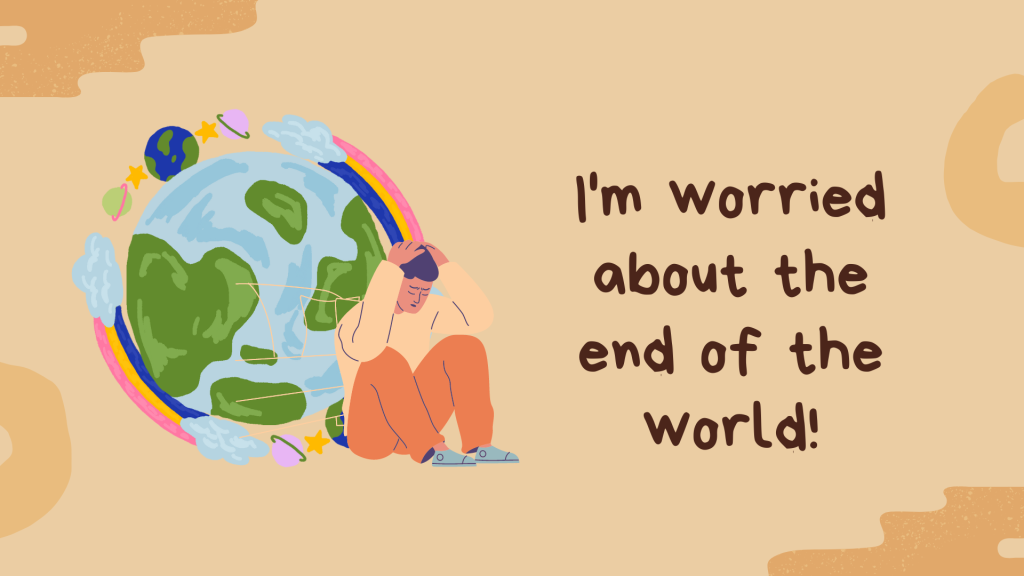- General definitions
Eco-anxiety (or Ecological anxiety): Ecological anxiety, also known as ecological distress or climate anxiety, is defined as “a chronic fear of environmental destruction”. Another widely cited definition is: “the general sense that the ecological foundation of existence is in the process of collapsing.” Some scholars use the term ecological anxiety as a synonym for climate anxiety. There is also evidence that ecological anxiety is due to the way researchers frame their studies and their narratives of evidence on climate change: if they do not consider the possibility of finding any solutions to climate change and for individuals to make a difference, they contribute to this feeling of helplessness.
Ecological anxiety is an unpleasant emotion, although it can also promote helpful behavior such as gathering relevant information. However, it can also manifest as conflict avoidance or even “paralysis”. Some people reported experiencing so much anxiety and fear about the future with climate change that they decided not to have children. Ecological anxiety gained more attention after 2017, especially since late 2018 when Greta Thunberg publicly discussed her eco-anxiety.
- Facts about Eco-anxiety
- Eco-anxiety occurs at all ages, especially in children and young adults: A survey published in September 2021 interviewed 10,000 young people from 10 countries around the world, showing nearly 60% are very worried about climate change. Two-thirds said they felt sad, scared, and anxious, while nearly 40% said they were hesitant to have children;
- Women have a greater prevalence of eco-anxiety than men: Women (45%) are more likely to report higher levels of eco-anxiety than men (36%). One reason eco-anxiety is more common among women is that 80% of climate migrants are women. Many women decide to have children or not based on climate change, as climate change is predicted to have more impact on future generations. A survey conducted by the New York Times in 2018 found that 33% of women who chose not to have children cited climate change as a reason.
- Eco-anxiety is understood as a psychological illness and has common manifestations: Eco-anxiety can manifest in a way that causes physical symptoms and can worsen mental health conditions. pre-existing. Symptoms include irritability, insomnia, inability to relax, loss of appetite, poor concentration, intermittent weakness, panic attacks, muscle tension, and seizures. These symptoms are similar to those experienced by someone diagnosed with generalized anxiety disorder.
REFERENCE SOURCE
[1] Yumiko Coffey, Navjot Bhullar, Joanne Durkin, Md Shahidul Islam, Kim Usher. Understanding Eco-anxiety A Systematic Scoping Review of Current Literature and Identified Knowledge Gaps. (2021). 100047. The Journal of Climate Change and Health. doi.org/10.1016/j.joclim.2021.100047;
[2] Vakoch, Douglas A.; Mickey, Sam, eds. (2023). Eco-Anxiety and Pandemic Distress: Psychological Perspectives on Resilience and Interconnectness. Oxford: Oxford University Press. ISBN 9780197622674;
[3] Vecchio, Emily Ann; Dickson, Michelle; Zhang, Ying (2022-05-01). “Indigenous mental health and climate change: A systematic literature review”. The Journal of Climate Change and Health.(2022-05-01).100121. doi:10.1016/j.joclim.2022.100121.
Apply for: The short Course & an eco-tourism trip – SOLEN & Dr. Laÿna Droz, September 2023



 Tiếng Việt
Tiếng Việt 日本語
日本語